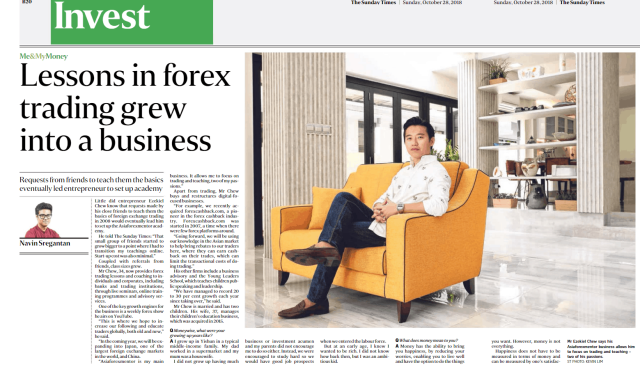Tips On How To Save For An Investment Portfolio In 2024

The #1 Forex Trading Course is Asia Forex Mentor
The importance of investing as opposed to saving money in the bank cannot be over-emphasized. Though it is difficult to save money, keeping it in the bank yields very little interest when compared to investing it in business or in the financial markets. Though investments are generally risky because you may lose your money, but they have proved to be a reliable method of growing wealth.
For example, a financial advisor wrote that some investors bought Apple Inc. shares in May 2007 at $3.70 per share and have kept it since then. Through the years, they have received lots of money as dividends and as of May 2022, their stocks are worth almost 40 times the invested amount.
The story is the same for early Bitcoin investors who thought it wise to invest in the new digital currency. In 2011, Peter Saddington; an American computer programmer, bought 45 Bitcoins for less than $3 each. 7 years later, he became a millionaire from an investment of less than $120.
In this article, we will discuss the meaning of an investment portfolio, its importance, and tips on how to save money in order to build an investment portfolio. We will also discuss the best online forex trading course.
What is an Investment Portfolio?

An investment portfolio is a basket of financial assets such as individual stocks, cryptos, bonds, etc owned by an investor for the purpose of generating returns. Usually, these investments are passively managed with the hope of earning periodic interests, dividends, profits, rent, etc, or capital growth.
Not all investments are the same and there is no absolute way of predicting which investments will flourish and which ones will lead to losses. Therefore, financial advisors insist that portfolio diversification is key to building wealth through financial investing. A diversified portfolio may include stocks, bonds, mutual funds, cash equivalents, cryptocurrencies, real estate, commodities, precious metals, etc.
Investment portfolio building takes into account some important factors such as the investor’s risk tolerance and investment goals. Risk tolerance is the amount of risk that an investor is willing to take. Some investments come with higher risks than others so, the investor’s personality is very important. Some investors have high-risk tolerance while others have a low-risk tolerance. Generally, in most cases, higher-risk investments come with higher returns.
Financial advisors believe that one of the most important decisions an investor makes is asset allocation. It is an investment strategy that divides the investments between different asset classes in order to balance risk and reward in line with the investor’s financial goals and time horizon. Popular asset classes are equities, fixed income securities, cash equivalents, real estate, commodities, financial derivatives, futures, cryptocurrencies, and other asset classes.
So, assuming investor A wants to build a retirement income of a stated amount in the next 20 years and investor B wants to buy a car in the next 3 years. The individual investments comprising the two portfolios will not be the same. A certified financial planner will advise safer investments with a long-term maturity for investor A and short-term investments, perhaps money market securities as part of Investor B’s portfolio.
Types of investment portfolios
Portfolios can also be classified into the following types:
#1. Aggressive Portfolio
The investor goes for assets with higher returns but it comes with high risks.
#2. Defensive or Conservative Portfolio
If you are worried about capital preservation and low risks, then this portfolio is best for you. It is built with particular stocks from companies that produce essentials like food and utilities. If you invest and hold stocks of this asset class, you are likely to reap good returns as they are usually stable even in times of recession.
#3. Income portfolio
The primary aim of the investor is to generate regular income from his or her investments. This portfolio consists of fixed-income investments such as high dividend-paying stocks, etc.
Tips on How to Save for an Investment Portfolio
#1. Develop a Plan

It is very important to come up with a robust plan before you start your investment journey. If you consult a financial advisor, both of you will design a document known as an Investment policy statement (IPS). This document stipulates the investor’s financial goals, risk tolerance, time horizon, liquidity, assets allocation, etc. The manager will now work with the IPS to develop a roadmap to achieve the investor’s financial goals within the defined timeline.
You can do the same on your own, just write down your financial objectives, risk tolerance, investment period, portfolio description, expected rates of return for each asset class you choose, cash flow, etc. Generally, everyone wants to own a house, buy cars, train their children in college and finally retire at 60-65 years. Your financial goals will determine the kind of plan you need.
An individual retirement account may be the best option for retirement savings. It is tax-efficient, has high returns, and restricts access; except if you lose your job or attain the retirement age. For shorter-term objectives, investing in stocks is historically the best option because some stocks pay regular income through dividends and can also be sold when prices appreciate.
#2. Review IPS annually

They say that “life is not a bed of roses” because the unexpected can happen and you suddenly find yourself in a financial situation. For example, if you got divorced, got involved in an accident, lost your job, developed a medical condition, etc. Such an occurrence is likely to impact your goal, financial objectives, and overall focus in life.
Also, if you just won a lottery, you will suddenly find yourself closer to financial freedom earlier than expected, so, your financial plan must change. Apart from unforeseen circumstances, we often change our vision and focus. People change careers all the time and focus on things they never thought they would have done five years ago. So, it is important that you review your IPS every year to ensure it aligns with your new objectives.
The advent of other investments option like cryptocurrencies, futures, derivatives, forex, and other short-term investments is great for diversifying a portfolio. Though the risks involved are higher, you may decide to modify the asset allocation portion of your IPS and venture into cryptos or invest in actively managed funds such as forex trading, MAMM & PAMM accounts.
#3. Find Ways to Cut Back on some Budget Items

It is very important to always prepare a budget whether you have a fixed income or variable income. This is because budgeting helps identify wastages, and instills financial discipline. Monitoring and tracking your expenses is a great way to ensure budget implementation. So, if you must save money to build an investment portfolio, you must find ways to cut down on expenses and ease up more funds for investing.
If you often go out for dinner in expensive restaurants, you can save money by eating homemade food. You can cancel vacation plans and invest the money instead. Weekend getaways can wait and expensive fashion can be postponed to save up more money for your project.
Sacrifices must be made to build a future income stream. If you can, take a second job to boost your income. There are so many online businesses that you can easily learn and start without spending much time or capital. If the side hustle is stressful, persevere and only stop once you have saved enough money for your initial down payment.
#4. Consider setting up an automatic transfer that devotes an amount from your paycheck to savings

Warren Buffet; a renowned American billionaire and investor said “Do not save what is left after spending. Spend what is left after saving.” Cultivating a saving habit is very important in personal finance. If you are finding it difficult to save money, then, consider automating funds transfers into your savings account every month or as soon as your salary is credited into the account.
Avoid using credit cards to pay your regular bills. This is because it has very high-interest rates and gradually sinks you into debt. Live within your means and do not live an extravagant life to impress people or to show off.
Even if you have a second job or online side hustle, apply the same rule of saving before spending and automate savings if possible. The overall aim is to commit more money to build a portfolio.
#5. Find Budget-Friendly Investment, such as exchange-traded funds (ETFs), etc

Do not begin investing with huge funds obtained from selling a property, inheritance, or life savings. Even if you believe that you are an aggressive investor with high-risk tolerance, never forget that all investments are risky and you may lose significantly. It is better to start small with low budget financial products like mutual funds, index funds, exchange-traded funds, etc
ETFs are a basket of securities that are grouped together and traded on stock exchanges just like stock investments. Several ETFs track specific assets, stocks, or sectors. It is a good way to diversify your investment as it gives exposure to multiple assets with a single investment. When compared to mutual funds and stocks, ETFs have lower fees in terms of commissions and management fees. Several ETFs are commission-free.
To begin investing in ETFs, find a reliable website that offers brokerage services and open a brokerage account. Research several ETFs and make choices, then, place your trade.
#6. Thoroughly research any financial professional before getting them as an advisor

Most times, it becomes difficult to handle your investments by yourself. You may miss out on new opportunities or miss the right timing to invest or withdraw your funds, hence the need for approaching professionals. But, handing over your hard-earned money to a financial advisor requires much trust. Many investors have been scammed by fraudsters posing as expert fund managers.
Before choosing any firm to be your financial advisor, carry out meticulous research, check their past performance, and make sure that they have the necessary qualifications and licenses. Some online firms use Robo advisors which are software that automates investments. In all cases, a bit of personalized advice is best for any investor.
A Robo advisor works with the data provided by the investor via an online form. Then, the software uses the inputted financial objectives, available funds, and risk tolerance to create and manage your investment portfolio. They offer cheaper management fees and you can start with less capital. Most Robo advisors are not sophisticated; being computer software, they are emotionless.
Featured Investing Broker of 2024
| Broker | Best For | More Details |
|---|---|---|
 | Advanced Non US Traders Read Review | securely through Avatrade website |
 | Intermediate Non-US Traders Read Review | securely through FXCC website |
Overall Broker | securely through Forex.com website | |
 | Professional Forex Traders Read Review | securely through Interactive Brokers website |
| Broker | Best For | More Details |
|---|---|---|
 | Advanced Traders Read Review | securely through Tradestation website |
 | Intuitive Platforms Read Review | securely through Tradier website |
 | Powerful Services at a Low Cost | securely through Tradezero website |
 | Professional Forex Traders Read Review | securely through Interactive Brokers website |
Best Forex Training Course

Do you want to create huge funds for investments? Maybe, you are looking for alternative investment opportunities with regular proceeds. Why not enroll in the ‘one core academy’ that is available on the Asia forex mentor website? It is a robust forex training program packaged by ‘Ezekiel Chew‘; the popular corporate educator, mentor, and successful forex trader. He has trained multiple bank staff, forex managers, individual traders, and investment firms.
The one core program was created from many years of studying, analyzing, and trading the financial markets. Ezekiel Chew came up with excellent trading strategies backed by mathematical probability. It has been rigorously tested and is trusted to generate millions of dollars in forex trading. He has packaged this strategy into a training course known as ‘one core program’.
Many investors and traders from all over the world that bought this course have nothing but testimonies of their success; courtesy of the trading formula taught in the course. The course is simplified for everyone; including those that know nothing about forex, stocks, or online trading. The only requirement is to be a committed learner and you will soon become an expert trader.
| RECOMMENDED TRADING COURSE | REVIEW | VISIT |
|---|---|---|
 | #1 Forex, Crypto and Stocks trading course. Ranked most comprehensive by Investopedia and Best by Benzinga. Free to Try! |  |
Conclusion: Tips on How to Save for an Investment Portfolio

An investment portfolio is a group of assets; bonds, stocks, and mutual funds, owned for the purpose of returns or growth in financial value. Building an investment portfolio demands appropriate asset allocation in consonance with the investor’s risk appetite and financial objectives.
What are your investment goals? Do you want to save to pay for your children’s college fees? Is it for early retirement? Perhaps, you want to go into real estate and earn a steady income. Your objectives must be clearly defined in your IPS. This document will also show the exact amount of money required, asset allocation, expected returns, and time horizon.
Investment rebalancing should be done periodically; doing it yearly is recommended. There are bound to be changes in your life; ways of reasoning, risk tolerance, and overall goals. Also, as new opportunities or occurrences happen, the need to review and update your portfolio arises. Even if there are no changes, an annual appraisal is necessary to check compliance with your financial targets.
Always prepare a budget and account for every money spent. Find ways of limiting unnecessary expenses; remember that you are saving towards building an investment portfolio. If possible, automate monthly savings from your salary account to your savings account.
There is no need to start big, you can start with investments that require small capital such as ETFs. Anyone that needs a professional to manage his or her investments must do thorough research on the person or firm. Several people have been scammed especially over the internet.
The one core program by Ezekiel Chew is a sure way to boost your personal finance and net worth. It can help create funds to meet your investing needs.
| RECOMMENDED TRADING COURSE | REVIEW | VISIT |
|---|---|---|
 | #1 Forex, Crypto and Stocks trading course. Ranked most comprehensive by Investopedia and Best by Benzinga. Free to Try! |  |
Tips on How to Save for an Investment Portfolio FAQs
What does a good investment portfolio look like?
A portfolio grossly depends on the investor’s preferences in terms of financial targets, risk appetite, fund availability, and age. But, a good one incorporates both aggressive and defensive investing options and the best asset allocation rules. It may contain mid-cap stocks, cryptocurrencies, mutual funds, target-date funds, etc.
Some advisors propose a 60/40 portfolio, that is 60% capital for stocks while 40% for fixed income securities. Generally, a good investment must be generating good returns, be diversified, cost-effective, and viable for a long time.
What are the 3 types of investment portfolios?
They are as follows:
- Aggressive portfolio: The main reason for investing is to take risks and generate high returns.
- Income portfolio: designed to generate regular income.
- Defensive portfolio: The aim of investing is low risks and long-term profits.


